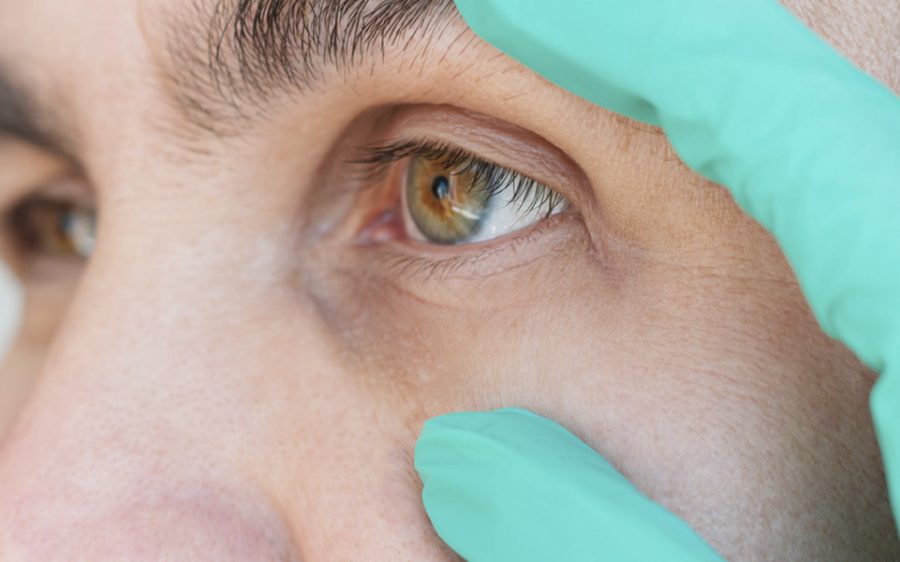
Noticing dilated pupils in a loved one can be alarming if you suspect substance use may be involved. Changes in pupil size can have many causes, but certain drugs are well-known for triggering this physical sign.
This article will help you understand which substances cause dilated pupils, why they happen and what steps you can take if you’re concerned about drug use. By learning the facts, you’re taking an important first step toward clarity and support.
Your pupils — the black circles in the center of your eyes — change size to control how much light enters your eyes. This process is automatic and is managed by your body’s sympathetic nervous system.
Pupil dilation is your body’s way of preparing you to react quickly. If you’re in danger or under stress, bigger pupils help you see more of your surroundings. Because this pathway is triggered by the sympathetic nervous system, anything that activates it — like certain drugs, strong emotions or even pain — can cause your pupils to dilate.
Pupil size can be affected by lighting, emotions and medical conditions, but changes caused by drugs that dilate pupils are often more noticeable and persistent.
To understand what causes eyes to dilate with drug use, it's important to know that the autonomic nervous system has two main branches — the sympathetic and parasympathetic systems. Drugs that stimulate the sympathetic system, like stimulants and hallucinogens, can relax the iris muscles, resulting in dilated pupils referred to as mydriasis. Drugs that activate the parasympathetic system cause the iris muscles to contract, leading to pinpoint pupils called miosis.
Many illicit substances can cause noticeable pupil dilation. Recognizing which drugs are most likely to have this effect can help you pick up on potential substance use and understand the risks. These are the main categories of drugs known to cause dilated pupils.
These drugs trigger the body’s parasympathetic response, or fight or flight response, flooding the system with norepinephrine and adrenaline. The result of cocaine and methamphetamine use is rapid pupil dilation, along with increased heart rate, restlessness and heightened alertness.
Pupil dilation from stimulants can last several hours, depending on the dose and individual metabolism.
Hallucinogens affect serotonin receptors in the brain, which play a role in regulating pupil size. Users often experience dramatic, prolonged pupil dilation, sometimes lasting up to 24 hours. Other signs may include visual distortions, altered perception and mood changes.
Ecstasy or Molly is the lab-made drug MDMA, an abbreviation of 3,4-methylenedioxymethamphetamine. It combines stimulant and hallucinogenic effects, leading to noticeable and long-lasting pupil dilation that can persist for many hours after use. Additional symptoms can include jaw clenching, sweating, intense emotional shifts and increased sensitivity to sounds, touch and smells.
While not as consistent as other drugs, marijuana can cause mild to moderate pupil dilation in some users. The effect is more likely with high doses or potent strains. Other signs can be bloodshot eyes, slowed reaction time and changes in appetite.
Not all drugs dilate pupils. Some substances have the opposite effect, leading to constricted pupils, a condition called miosis.
Opioids like heroin, fentanyl, morphine and certain prescription painkillers are the primary drugs that cause pinpoint pupils. As they stimulate the parasympathetic nervous system, the pupils get smaller as the circular iris sphincter muscle contracts. Miosis is a classic sign of opioid use and can be accompanied by dropping eyelids, changes in eye movement, drowsiness, slowed breathing and confusion.
Changes in pupil size are a key indicator, but they’re not the only sign of substance use. Being aware of other physical and behavioral changes can help you build a clearer picture and decide when to seek help.
These can include:
If you suspect a loved one is struggling with drug misuse or addiction, starting a conversation can feel overwhelming. Approaching the topic with empathy and preparation can make a significant difference in how your concerns are received.
Start by planning what you want to say ahead of time. Focus on expressing concern instead of judgment. Substance use disorder is a medical illness that millions of people struggle with daily.
Choose a private, calm setting where you won’t be interrupted and use “I” statements like, “I’ve noticed your pupils are often very big and I’m worried about you,” to avoid sounding accusatory.
Be prepared for denial, anger or defensiveness — these are common reactions to feelings of shame, embarrassment and the common misbelief that all they need to quit is willpower. Stay calm in the face of emotional reactions and offer support and resources like information about professional treatment options. Let them know you’re there to help, not to punish or shame.
If you or someone you care about is struggling with substance use, professional treatment offers the best chance for recovery. Modern addiction treatment is compassionate, evidence-based and carefully planned out according to each individual’s needs.
Some of the options include:
You may still have questions about pupil dilation and drug use. Here are answers to some of the most common concerns:
If you’re worried about drug use in yourself or a loved one, you don’t have to face it alone. Compassionate, expert help is available. At Diamond House Detox, we specialize in addiction and mental health treatment, with our team providing confidential assessments and personalized care plans.
Take the first step toward recovery — contact us today or explore our addiction treatment programs for more information and support.